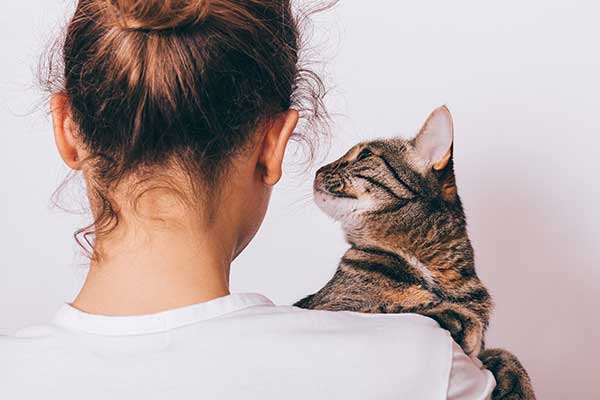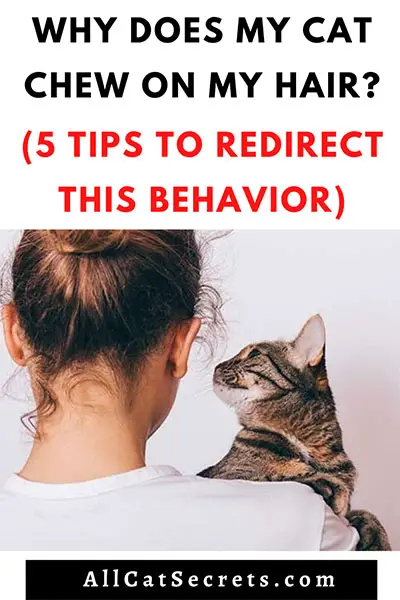You’re unwinding by your swimming pool in the early afternoon after enjoying a serenading dip. Your cat thinks that you could use some company, so she races up to the pool and joins you.
To any cat owner, this is one of the ideal moments to pet, groom, and bond with their feline friends. But out of nowhere, your cute little grabs your hair and begins to chew on it. You think she’s just messing with you, but then the chewing gets more intense.
Before you know it, your hair is all messed up and the cat is showing no signs of letting up. In fact, she gets more worked up as you try to push her away. You begin to wonder, why does my cat chew on my hair?
Now, cats are known to harbor some quirky and bizarre fixations. While a cat chewing on your hair may come as a surprise, it might as well pass as a normal pastime to the animal. Cats are hyperactive animals that require frequent stimulation. If they don’t get enough of it, they may resort to chewing on their owner’s hair.
But as you shall find, there are numerous other reasons why your cat may be chewing your hair, including the possibility of an underlying medical condition.
As the cat’s owner, the onus is on you to uncover the reasons behind this aberrant behavior. It’s only then that you can apply the right solutions to either redirect or stop the behavior.
Read on for more insights on why cats chew on their owners’ hair, the potential dangers, and what you can do to address the problem.
Why Does My Cat Chew My Hair? Here Are Possible Reasons
One of the frequently asked questions among many cat owners is, why do cats chew or eat human hair?
We already mentioned that a cat can chew on her owner’s hair as a pastime. Cats derive pleasure from different activities and chewing on their human hair might be one of them.
In this case, your cat regards your hair as a harmless toy that she should play with. As she pulls and chews on your hair, the cat gets a rush of feel’-good endorphins. These endorphins only stimulate your cat’s desire to continue chewing and tugging at your hair.
In addition to being a pleasurable activity, the following are other reasons why cats generally chew on their owner’s hair;
1. A Show of Affection
Cats have their own ways of demonstrating affection for their human owners and they can do so by chewing on your hair. This usually happens when you’re sitting on the couch, sleeping, or just taking a rest.
According to many pet behavioral experts, almost all cats are victims of allogrooming. Allogrooming is a kind of mutual grooming that involves a cat grooming the head or neck of another cat or her human owner. So, the next time your feline friend begins to chew on your hair, it might as well imply that she’s trying to shower you with love.
Some cat owners often ask, why does my cat bite my head when I’m sleeping?
As we’ve just indicated, it’s all a show of affection. By chewing on or licking your hair while you’re asleep, the cat is only trying to demonstrate her undying love and affection for you.
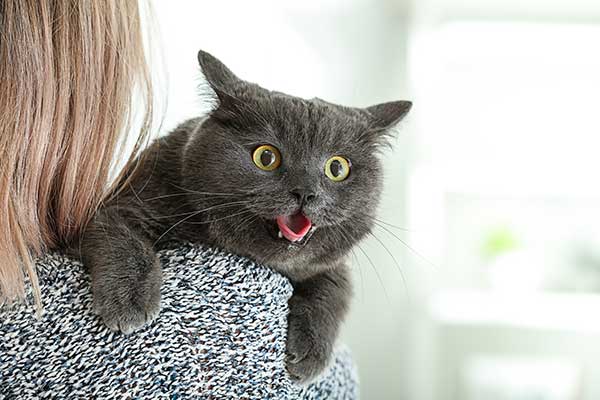
2. Attention Seeking Behavior
Cats are notorious for craving their owners’ attention. Just as some cat owners are notorious for ignoring their feline friends. When a cat feels like she’s not being accorded her fair share of attention, she may just jump onto her owner’s hair and begins to chew on it.
Not many people love the idea of their hair being prodded and disheveled. So, this trick somewhat usually works in the cat’s favor.
3. Stress and Anxiety
Cats are known to suffer various forms of anxiety, especially due to boredom or sudden disruption in their routine.
For instance, changing your cat’s feeding hours or sleeping area is likely to get the animal worked up. When this happens, she may resort to all manner of strange responses, such as chewing or pulling at your hair.
There’s usually no cause for concern if the anxiety is caused by a transient stimulus, such as a loud bang in the neighborhood. However, be sure to rule out separation anxiety.
Separation anxiety refers to an anxiety disorder that affects nearly all domesticated animals. It occurs when you leave your cat alone for extended durations without making provisions for her stimulation.
If separation anxiety is the primary cause behind your cat chewing on your hair, you’ll notice that the animal does that every time you’re about to leave the house. It’s her own way of begging you not to leave her alone.
4. Your Hair Smells or Tastes Good
It’s not unusual to come across a cat owner wondering, why does my cat bite my hair after I shower?
You don’t need rocket science to know that a cat licking on your hair immediately after a shower indicates that the animal loves the smell of your shampoo or air conditioner. Cats are generally attracted to citrus-like tastes. So, if your hair products are formulated with a citrus essence, your feline friend may be blown away by it.
In addition to the pleasant smell of your hair shampoo, the appearance of your hair after taking a bath might also be a pull factor.
If you’ve always wondered to yourself, why does my cat bite my wet hair? The chances are that the cat is drawn to both the shape of your hair and the scent of the hair products you’re using.
In some cases, you may have spent too much time in the kitchen and your hair is washed in the aroma of stew. As long as your cat loves the smell or taste of your hair, she will not hesitate to chew or pull on it.
5. She Was Weaned Far Too Young
In some cases, cats licking or chewing on their owner’s hair is an indication that the animal was weaned while still too young. This mostly happens with kittens.
Cats should not be separated from their mothers until they’re at least 8 to 10 weeks. Weaning the cat earlier than 8 weeks may cause her to chew, lick, and even bite her owner’s hair.
In most cases, cats that are weaned too early tend to bite or chew on their blankets. But if there’s no blanket around to chew, the cat may turn on the next best thing available, which might happen to be your very own hair.
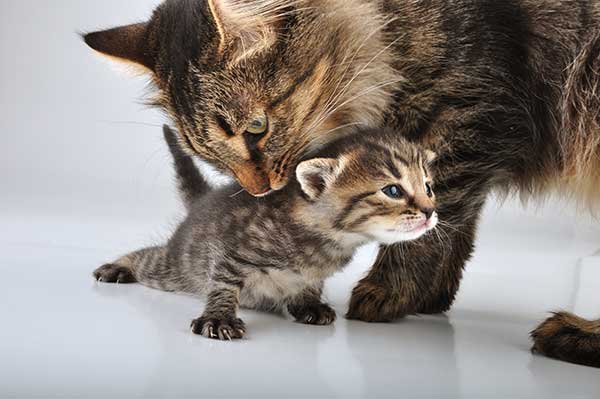
6. Genetic Predisposition
To some cat breeds, chewing comes naturally. These cats will chew on anything, from furniture to upholstery, electronic cords, shoelaces, books, and even their bedding.
To them, anything that looks chewable is fair game, and that includes your hair. Examples of such breeds include Tonkinese, Burmese, Siamese cats and various other Orientals.
7. Dietary Deficiencies
Cats are known to be obligate carnivores, which implies that they mainly thrive on a diet of animal protein. However, you may have observed your cat nibbling on grass blades in your back or front yard from time to time.
A cat may be attracted to foods that do not comprise her staple diets if the cat is poorly fed. The same applies to your hair. If you don’t offer your cat enough food, she may develop an interest in your hair.
Sometimes, a cat may chew and lick your hair as a way of easing indigestion. This is another reason cats are drawn to grass and other things that they should not eat.
8. Medical Conditions
After ruling out all the reasons above, it could happen that your cat still bites, licks or chews on your hair. That may get you wondering, why does my cat lick my hair, could it be indicative of a medical problem?
Yes, there are certain medical conditions that could trigger this quirky behavior. We already highlighted separation anxiety.
There’s also an obsessive-compulsive medical condition known as pica. Although it’s primarily an anxiety disorder, pica is actually caused by nutritional deficiency.
Other feline diseases that could manifest in the chewing of hair include FIV, leukemia, diabetes, brain tumors, and hyperthyroidism.
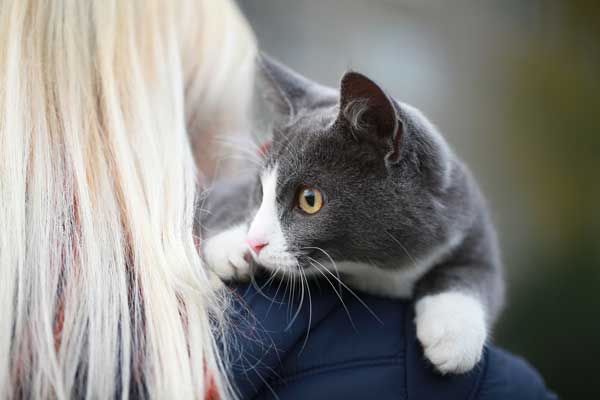
So, why is my cat biting and pulling my hair? Well, that could be due to any of the potential causes highlighted above.
Is It OK For My Cat To Lick My Hair?
Having gone through all the possible reasons why cats chew on their owner’s hairs, the next question to settle is whether this behavior is okay or not.
Of course, there’s no denying the fact that a cat chewing or biting on your hair is a highly uncomfortable experience. But other than the sheer discomfort, is it dangerous for my cat to eat my hair? Yes, the behavior is dangerous, both to you and the animal.
First, is hair safe for my cat to eat?
No, hair might cause your feline friend to develop furballs. As their name implies, furballs are balls of fur that often accumulate in an animal’s body. Furballs are common among animals that groom themselves a lot, such as cats, and could interfere with their digestion.
Another reason you shouldn’t allow your cat to chew on your hair is that the cat could suffer gastrointestinal complications after licking on potentially toxic hair products.
Remember, most human hair products are not formulated with pets in mind. In fact, these products aren’t even safe for us if ingested. So, it’s naïve to imagine that your cat can lick on your hair and not suffer complications like vomiting, diarrhea, or an upset stomach.
On the other end of the spectrum, a cat licking your hair also comes with inherent risks for you. A cat’s saliva carries numerous pathogens. While these pathogens are generally safe in a cat’s body, they could cause serious infections if they enter the human body.
Also, allowing your cat to chew or bite your hair might leave you nursing some serious wounds.
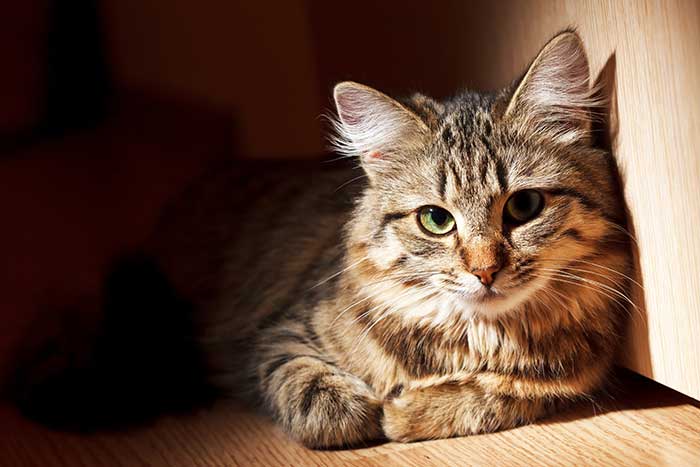
How to Stop Your Cat from Biting Your Hair
There are several ways to get your cat to stop chewing or biting your hair. First up, you’ll need to establish the underlying cause. Remember that the solution you apply to try and stop this behavior will largely depend on the cause.
The following are some of the ways to stop your cat from biting, chewing, or pulling your hair;
1. Offer the cat enough stimulation
As we already indicated, one of the primary reasons your cat could be chewing on your hair is that the animal lacks enough stimulation.
Therefore, you can redirect the behavior by offering your cat enough toys to keep her mentally and physically stimulated. An excellent recommendation here would be interactive laser cat toys.
Toys will not only help to keep the cat stimulated, but they will also go a long way in keeping boredom, stress, and anxiety at bay.
In addition to toys, you might also consider hiring the services of a cat sitter. That’s especially if your schedule cannot allow you to be with your cat throughout.
2. Avoid drastic routine changes
There’s nothing wrong with undertaking a home renovation, bringing new furniture home, or even moving homes. However, if you own a cat, you must always go slow when undertaking any activity that could cause a major change in your cat’s routine.
For instance, if you’re planning to bring a new cat home, ensure that both the resident cat and the newcomer are properly-introduced.
3. Keep your hair out of bounds
A cat may grow fond of playing with her owner’s hair because the hair is always within reach. So, a natural way to discourage the behavior is to keep your hair out of reach. There are several ways to go about this.
First, you can walk away from your cat whenever she attempts to come too close to your hair. You might also consider wrapping your hair in hair caps whenever you’re around the cat.
If it comes down to it, invest in hair products that are formulated with chemicals that naturally repulse cats. An example of such a chemical is vinegar.
ALSO READ: How to Get an Aggressive Cat into a Carrier (A Comprehensive Guide)
4. Ignore the cat
Some cats will just chew on your hair as a way of trying to get your attention. The best thing to do under these circumstances is to ignore the cat.
On a long enough timeline, the cat will understand that pulling or biting your hair is probably not the best way to get your attention.
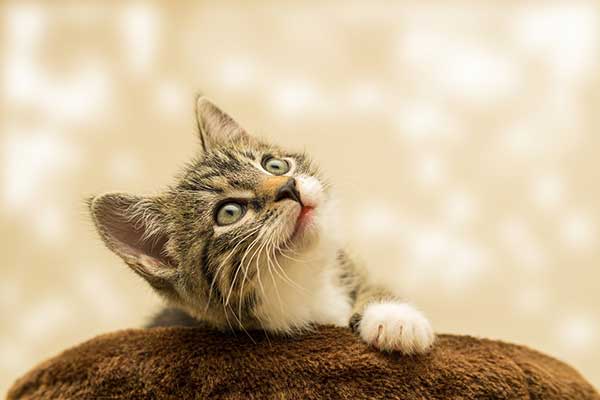
5. Make a date with your vet
After trying all the above solutions and nothing seems to work, it may be time to make that necessary trip to the vet. Your vet will examine the cat and establish whether her behavior is a result of an underlying medical condition or not.
If the hair chewing problem is mostly behavioral, the vet will suggest a raft of measures you can follow to overcome or cope with it.
Conclusion: So, why does my cat chew on my hair?
There are plenty of reasons why your cat could chew, bite, or pull on your hair. Similarly, there are numerous solutions you can adopt to stop the behavior. You only need to understand the cause in order to apply the right solution.

